#tips for science students
Text
I made a beginner coding resource! 👩🏾💻💗


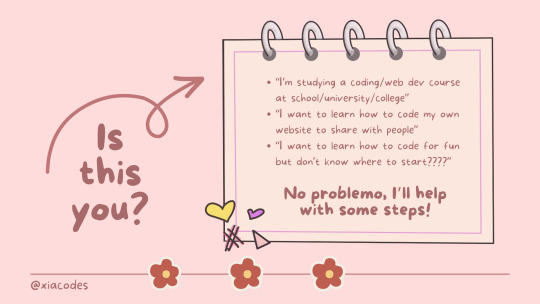
Hiya! 👩🏾💻💗
I made a coding infographic/slideshow for anyone getting into coding and are stuck! I'm seeing a lot of new codeblr blogs coming up recently and they're all beginners and I have been getting a lot of asks which basically all ask "I'm new to coding, how do I start?", so I decided to make this at 1am in the morning real quick! 🥲😭
I genuinely hope that this resource proves beneficial to someone out there. And remember, if you find yourself still facing challenges or need assistance with anything else, please don't hesitate to reach out. I'm here to help! ✨
Link to the PDF: LINK
#resources#my resources#codeblr#coding#progblr#programming#studyblr#studying#computer science#tech#study tips#compsci#studyblr community#cs studyblr#cs student#study aesthetic#pink study
2K notes
·
View notes
Text
Okay, look, I've been in college for two years and my Biology professor has pretty significantly rooted this educational science game called Labster into her course.
I was not expecting to be playing Portal all day for school.
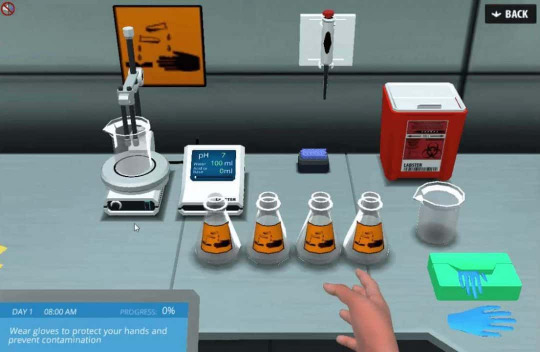
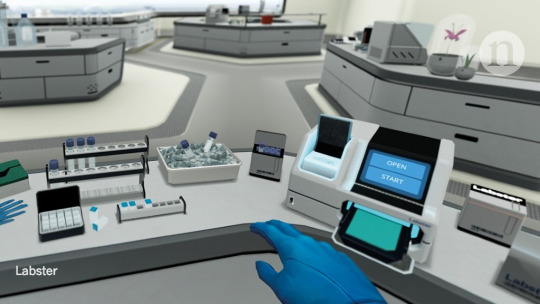
Yeah, this is a full, 360 sci-fi free roam lab environment that you can pretty much do whatever you want in. You know those cruddy flash game experiments you used to do in middle school? Those are a thing of the past.
And check this: the entire lab is being run by this super cool AI droid named Dr. One

She floats around and directs you around the lab depending on the lesson you're taking and sounds eerily similar to GLaDOS. It turns out that Dr. One also has a lore page and that she was created originally for "unethical purposes."
Also, this environment is extremely detailed and even runs shaders and ambient occlusion in your web browser.
That's pretty nuts, considering the only time we ever see these things are built into genuine video games, not a web browser lab. It runs incredibly smoothly on my GTX 1050.
This is insanely impressive and I actually enjoyed my homework today. 10/10, would play this in my free time.
#gaming#indie games#game development#education#biology#science#science side of tumblr#biochemistry#college#college tips#university#student#studying#college life#student life
2K notes
·
View notes
Text


I spent the whole day at the library again :,) Days like these can get exhausting but at the end of the day I’m always happy I did the work. For anyone else that’s struggling, remember hard work always pays off! Here I was going through and revising all of the content we covered
(August 12th 2023)
#study#studying#student#studygram#university#college#notes#motivation#science#studyblr#study abroad#study with me#study motivation#study inspiration#study tips#study hard#study blog#study inspo#studyspo#study space#study aesthetic#study mode#study notes#aesthetic notes#stem#school#high school#exams#stem studyblr#stemblr
640 notes
·
View notes
Text
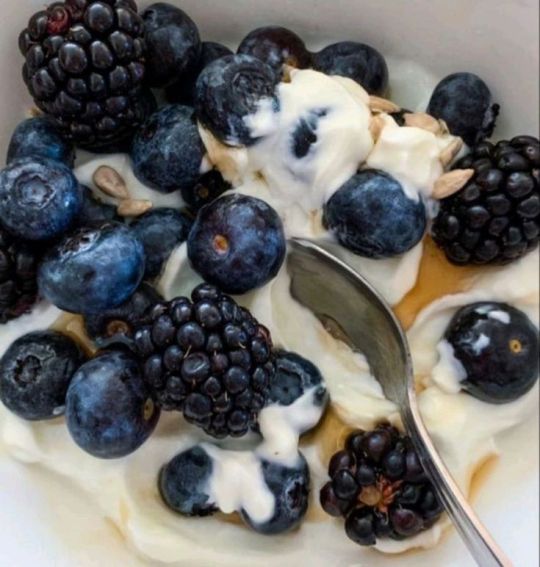
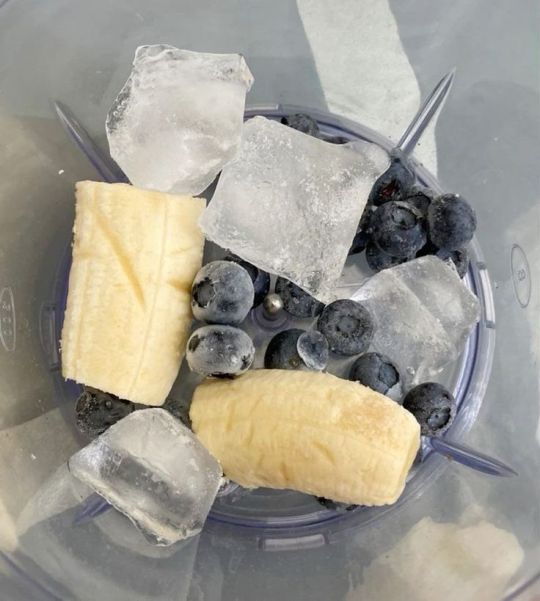
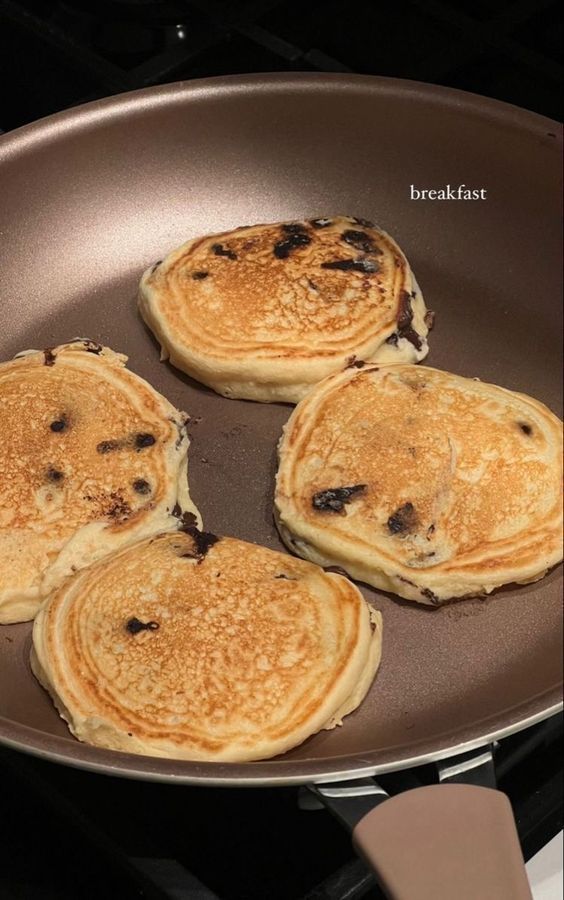
the effect of what (and how) you eat
okay, this is a big topic. and so this is a long post. i'm going to be going over the effect of what you eat and why it's important to think about what foods you are consuming. don't worry! i do my research-- at the end of the post will be a few resources, and i'll show where i've gotten my information.
lots of dietary advice is available over the internet, but often the people absorbing the information do not understand the why. knowing where your information is coming from,, and not believing everything you read online is key to actually maintaining a good, healthy diet.
before you read: TRIGGER WARNING THERE IS MENTION OF EATING DISORDERS,,
let's start with this: like everything in this age, food is a double-edged sword. overconsumption and underconsumption can both kill you. what you eat; how you eat--it can help or hinder whatever your goals may be.
here's the effect/s: the connection between diet and mental health is profound. while we’ve long understood that diet plays a crucial role in overall health, emerging research in the field of nutritional psychiatry sheds light on how what we eat directly impacts our emotional well-being and mental state.
the brain-gut connection: the gut is closely linked to the brain. trillions of living microbes in our gut have essential functions, including synthesizing neurotransmitters. these neurotransmitters send chemical messages to the brain, regulating sleep, pain, appetite, mood, and emotions.
to improve your gut health, here's what you can do:
by eating a varied diet that includes fruits, vegetables, whole grains, nuts and seeds, essential nutrients are provided which feeds the beneficial bacteria in the gut. high fibre foods promote gut health by supporting good bacteria.
fermented foods, such as yogurt, kefir, sauerkraut, kimchi, and miso are rich in probiotics—live beneficial bacteria that boost gut health. kombucha (a fermented tea) is another option.
avoiding reducing processed foods can reduce the diversity of good bacteria in your gut. when i say processed foods, i'm referring to ultra-processed foods, for example, fried foods and frozen meals. they may be easy and cheap, but they include preservatives, artificial colouring, chemical flavouring and texturing agents. all of which our bodies are not made to consume.
it's ignorant to tell you to avoid processed foods at all costs. that's not realistic, and a horrible mindset. instead, you should manage your intake. enjoy treats every now and then and don't punish yourself for it.
hydration is key to a healthy gut. water supports digestion and nutrient absorption.
stress management, eating well and exercise can also help your gut microbiome's health.
by having a healthy gut microbiome, you are helping your body to have lower chronic inflammation, have regular bowel movements and more effectively absorb nutrients. therefore, you will have a stronger immune system, have clearer skin and support your digestion and metabolism.
why eating protein matters: proteins are made of amino acids, which serve as the fundamental building blocks for various structures in our bodies. these amino acids are essential for forming enzymes, hormones, tissues, and DNA. protein is vital in maintaining and building muscle mass. when activities like strength training and physical exercise are engaged in, protein helps build and repair the muscles.
hemoglobin, a protein in our red blood cells, transports oxygen from our lungs to other tissues. without adequate protein, oxygen delivery would be compromised. antibodies, which defend against infections, are made of proteins. a well-functioning immune system relies on sufficient protein intake. collagen, a protein, maintains the integrity of our skin, hair, and nails. adequate protein supports healthy skin elasticity and wound healing.
the recommended dietary intake for protein relies on factors such as age, weight, height, gender, activity and overall health. remember that individual needs can vary, so consulting with a healthcare provider or registered dietitian is advisable to determine your specific protein requirements.
many diets exist that cut out entire macronutrients (keto for example) but that is not the way. each macronutrient has great importance in helping the body function.
carbohydrates are the body's (including the brain) preferred energy source. they enable muscle contraction during exercise and even at rest. carbs maintain body temperature, support heart function, and aid digestion.
the keto diet comes from the belief that when carbohydrates are not providing energy (are not being consumed), the body will use reserved energy stored in lipids (fat). while this is true, this diet is not maintainable-- it throws the body out of whack, storing more energy to maintain homeostasis.
fats provide energy and are essential for hormone production. they contribute to cell growth, brain health and vitamin absorption.
our brain is composed of ~60% fat. fats are essential for neurotransmitter production, affecting mood, cognition, and hormonal signalling. cholesterol, often associated with heart health, is a precursor for steroid hormones (testosterone, estrogen, progesterone). without adequate cholesterol, our body cannot produce these essential hormones.
effects of diet on mood: firstly, going long periods without eating can cause a drop in blood sugar levels, leading to tiredness and irritability. secondly, consuming excessive amounts of food can make you feel tired and lethargic.
choosing the right carbohydrates can help maintain blood sugar levels. our brain primarily runs on glucose (obtained from carbohydrate-rich foods). you can opt for slow-release carbohydrates to maintain steady energy levels. slow-release carbohydrates (a.k.a low GI food) provide a more sustained and gradual release of energy compared to other carbohydrates. examples include fruits, vegetables, whole grains (grainy bread, brown rice, oats) and sweet potatoes. high GI foods rapidly spike blood sugar levels due to their quick digestion and absorption.
going too long without eating can lead to low blood sugar levels, resulting in irritability and fatigue. overeating to discomfort can also leave you feeling tired and lethargic. consistent, moderate-sized meals help maintain stable blood sugar levels and promote an even mood.
i know, overeating is an issue that one cannot simply 'turn off'. it's important to know the psychology, and if you struggle with it--please talk to a health professional.
here is what i can tell you about overeating:
overeating is typically a learned behaviour and habit. certain foods are associated with pleasure and reward. when enticing food is encountered, we engage in eating behaviour and immediately experience pleasure. this reinforces the habit, making it challenging to change.
overeating may be serving as a coping mechanism for emotions. when feelings of sadness, disappointment, frustration, or even joy arise, someone may turn to food. emotional eating provides temporary relief, reinforcing the behaviour.
the first delicious bite triggers pleasure, satiates our appetite, and improves our emotional state. our memory associates this reward process with eating, leading us to continually seek that pleasure. this is due to immediate reward.
people with eating disorders may disregard their health, body, body image and lifestyle goals. they use food as a way to punish themselves and gain control over their life. restrictive eating disorders can lead to 'binging behaviour'. bingeing serves as a way to numb emotions. anxiety, stress, and depression can trigger binge behaviours. consuming certain foods or substances (like junk food or alcohol) releases dopamine, the “feel-good” neurotransmitter. this chemical rush can lead to physical addiction, reinforcing bingeing. a culture (unfortunately which is abundant in the world today) that emphasizes consumption as a measure of worth can contribute to bingeing. messages about thinness, drinking, and material possessions can drive these behaviours.
i hate that i am having to say this but alcoholism is bad. and caffeine addiction is bad. in no way is harming your health aesthetic or 'a vibe'.
limiting caffeine and alcohol can also improve mood. again, i'd like to stress that there is never going to be one perfect diet, and allowing yourself to enjoy whatever food you like is perfectly fine- as long as you are doing so in moderation.
everything is a balance.
resources/further reading, to end:
Fat Requirements For Optimal Hormonal Health - Clean HealthHow Dietary Fat Benefits Hormones - Women's International Pharmacy (womensinternational.com)
The truth about fats: the good, the bad, and the in-between - Harvard HealthDietary fats | healthdirectMacronutrients: Definition, importance, and food sources (medicalnewstoday.com)Know Your Macros-Why Macronutrients Are Key to Healthy Eating | Cedars-SinaiWhy the Proper Balance of Macronutrients is Vital for Good Health - Functional Diagnostic Nutrition
What Is Protein & Why Do You Need It? (eatingwell.com)Protein: Why Your Body Needs It (webmd.com)Protein | The Nutrition Source | Harvard T.H. Chan School of Public HealthBinge-Eating Disorder (Compulsive Overeating) | Psychology Today AustraliaThe Psychology Behind Binge-Watching | PsychregBingeing: Why It Happens and What You Can Do About It (greatist.com)
Understanding Overeating: The Psychology Behind It - Listen-HardWhy stress causes people to overeat - Harvard HealthThe Truth About Overeating | Psychology TodaySlow-release carbs list (medicalnewstoday.com)Why understanding carbs (and how to count them) matters | Diabetes UK
Food and your mood - Better Health ChannelHow food can affect your mood | Nutrition AustraliaStress-related stomach pain: When to see a doctor - UChicago MedicineWhat Is Gut Health? A Comprehensive Guide to Digestive Wellness | U.S. News (usnews.com)Why Gut Health Matters More Than You Think | Well.Org
Probiotics: What They Are, Benefits & Side Effects (clevelandclinic.org)Probiotics: What You Need To Know | NCCIH (nih.gov)What should I eat for a healthy gut? - BBC FoodLet’s Eat: How Diet Influences the Brain (brainfacts.org)
i know the fact that the resources are one big block may be annoying, but i don't have the commitment to in text reference lmao. hours of research and writing for a blog post, yes, but in text referencing is just too far.
i hope you learnt something
❤️joanne
#elonomh#elonomhblog#student#student life#academia#chaotic academia#productivity#study blog#that girl#becoming that girl#sports science#anatomy#health science#health and wellness#healthy life#healthy lifestyle#wellness and health#mental health#health & fitness#healthylifestyle#health tips#wellness aesthetic#wellness girl#wellness moodboard#wellness#wellbeing#healthy living#vitamins
96 notes
·
View notes
Text


Day Ten - I created this blog right before starting my data science degree as a way to keep me accountable for my studies. Needless to say, I didn’t achieve this goal as I dropped out. However, that doesn’t matter! I now have a visual diary of my entire adult life in France ?! That also features my journey of falling in love with psychology/linguistics! And also!! I have a safe space filled with such lovely people~ Wow I feel so lucky!! ♡
#throwback pic of my data science notes 💃 making pretty notes was the only thing about that degree that brought me joy#Actually the friend in this pic in Paris is the one I met up with + others last night! 💕 Didn’t get into ruby grangers vlog this time:(#tranquilfallbuddies#studyblr#cottagecore#light academia#university#student#studyspo#study inspiration#study motivation#study tips
829 notes
·
View notes
Text
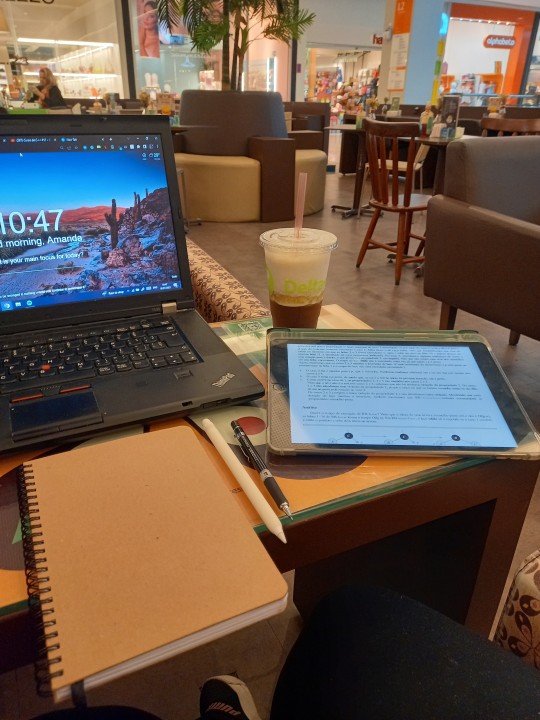
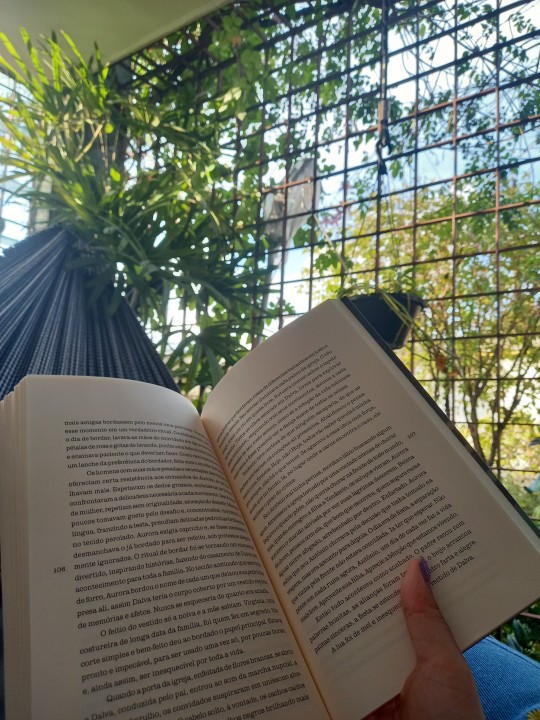
18.01.23 // photo dump from today
#study#new studyblr#new studyspo#study motivation#studyblr#studying#student#study aesthetic#study inspiration#brazil#stem aesthetic#aesthetic notes#aesthetic#computer science#college student#study tips#light academia
492 notes
·
View notes
Text
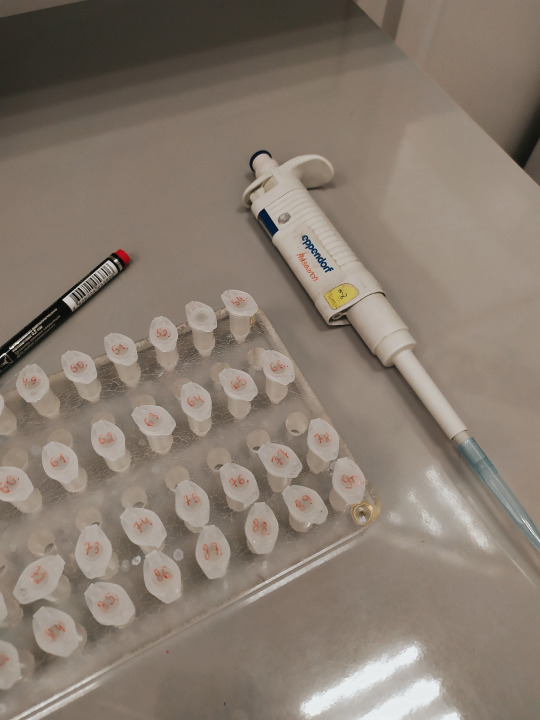



[08.02.24]
Busy day in the genomic selection lab.
DNA extraction from blood.
🔬: laboratory work in biochemistry and molecular biology.
#university#blogger#unidays#diary#biology#real life#science#my day#study motivation#study blog#student#100 days of studying#stemblr#student life#study aesthetic#study buddy#study hard#study inspiration#study tips#studyblr#studyblr community#studying#studyspo#studystudystudy#study space#uni student#university student
55 notes
·
View notes
Text
college tips from someone who survived their first year, and got themselves off of academic probation
study every day ( reread your notes, run through your flashcards)
it helps to avoid cramming around finals season
do assignments when you get them, it doesn't matter that its not due until the end of the semester, you will forget, you will get busy, you will get caught up with doing something else so do it when you get it, so you won't have to worry about it later
don't study in your bed, its a bad habit, it will make it harder to study and make it harder to sleep
go out at least once a month, to a party, to a club, on a late night walk
carry a knife if its legal ( not just for safety reasons)
join class group mes
go to office hours, even if you don't need to, lie and say you didn't understand something so the professor knows your name
its okay to skip a class occasionally, just never two in a row, and don't make it a habit
#study motivation#college#college tips#academic projects#academic probation#student#study blog#animal science#qoutes#studyspo#studyinspo#reading#studying#studyblr
26 notes
·
View notes
Text


Absolutely tired today.
• Already 6 hours of study.
• Quick lunch.
• Power Nap of 20 minutes.
And always the views from my window ❤️
Let’s do this ✨🧠
Day 2 of productivity.
#studyblr#study#studystudystudy#100 days of productivity#study hard#study blog#studygram#studyspo#studywithme#medical student#medical studyblr#science#future doctor#she studies medicine#university#student life#studying#exams#study tips#study motivation#study aesthetic
51 notes
·
View notes
Text
IUPAC Nomenclature In Simple Words
Hi guys! This is a fast summary for the ones that find the IUPAC Nomenclature difficult, I hope it is useful.
The Basic Rules You Need to Know
The Longest Chain Rule. It basically means you need to count the carbons in the chain(s). The chain with the largest amount of carbons is the "parent", which means you will name the compound based on the number of carbons present.
The Lowest Set of Locants. It means you must count the atoms in the chain and name them based on which number would be the smaller for the substituent. Basically, if counting from left to right your substituent is in 2, but in right to left is in 4, you must count from left to right as 2 is smaller than 4.
Multiple Instances of the Same Substituent. It means that if you have the same substituent more than once in the chain, you must put a suffix that says so. Ex, you have to methyls then you would put dimethyl.
The naming of different substituents. If you have more than one substituent in your compound, you'll put the names in alphabetical order. Ex, ethyl would go first than methyl.
Naming different substituents present in the same position. If you have two substituents in the same carbon, put the number of the carbon + a comma. For example, 3,3-methyl.
Naming Complex Substituents. If a substituent has a branch with another substituent, name it as an alkyl group and put it in brackets.
Roots to name the parent chain:

Substituents:

Examples from my own notes:

Good luck to everyone!
#my notes#organic chemistry#chemistry#iupac#science#study motivation#academia#chaotic academia#study#study tips#high school#student#studyspo#ib#studyblr#stem#biochemistry#study aesthetic#studywithme#studying#productivity#paula studies
173 notes
·
View notes
Text
How to learn: HTML | Resources ✨
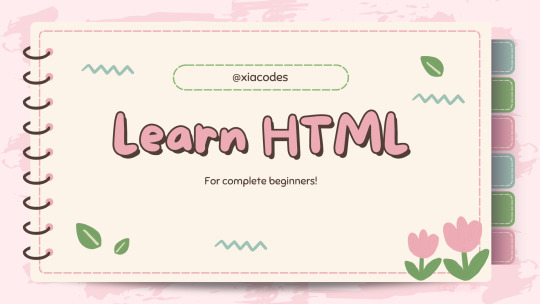

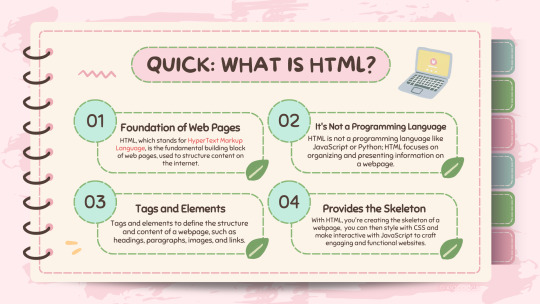
Sunday 10th September 2023
I have come back with a new resource I've made! This time about how to learn HTML! I'm starting from the basics right now and working my way up of 'how to learn' info resources!😅
I've made a HTML resource in the past (one | two) but this one is a bit more detailed and has tips of how I studied HTML. I use HTML on the daily so though I would share my knowledge with more people. Again, just like my previous resource "Starting your coding journey", this is more targeted towards absolute beginners or for people who want to learn how to customise their Tumblr blog/Neocite! 👩🏾💻
Anyhoo, check it out and let me know what you think: LINK
#my resources#resources#codeblr#coding#progblr#programming#studyblr#studying#computer science#tech#neocities#programmer#comp sci#study tips#compsci#studyblr community#cs studyblr#cs student#study aesthetic#pink study
1K notes
·
View notes
Text

Academic words that will 𝐏𝐨𝐰𝐞𝐫 your writing skill.
.
Words that enhance your writing
.
I help researchers increase engagement with their work. Together we will transform your ideas into unique and intuitive graphics with my reliable process:
1-Pinpoint your goals
2-Sketch and prototype
3-Discuss and iterate
4-Goal accomplished
.
𝐇𝐈𝐑𝐄 𝐌𝐄 (DM Your Projects)
.
💎Here to HELP You:
✔️Graphical Abstract Design
✔️Journal Figures Design
✔️Scientific Illustration
✔️Flyer and Poster Design
✔️Infographic Design
✔️Slides Design
#words#writing tips#writing tools#academic writing#creative writing#writing#writeblr#writing community#writers of tumblr#writer#biotechnology#biotech#science#biology#biochemistry#studyblr#molecularbiology#notes#class notes#students#bioinformatics#bacteria#commisions open#open commissions#commission
515 notes
·
View notes
Text

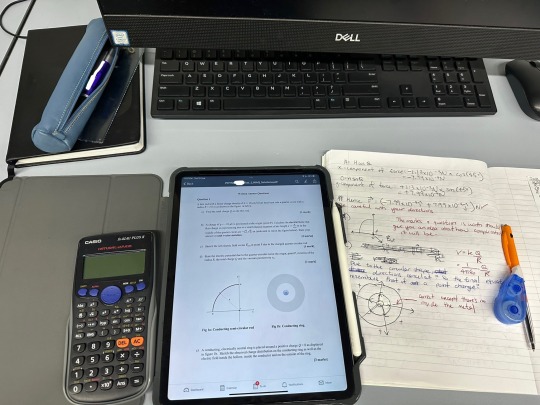
Finished my astronomy and physics test!! They went okay ahaha, not the best but not the worst. I’ll only know after I get the results back. There’s no time to relax tho! I have reports and assignments due and a math test next Tuesday :,) forever on the grind fr. At least the break is soon
(August 17th 2023)
#study#studying#student#studygram#university#college#notes#motivation#science#studyblr#study blog#school#study tips#study mode#study motivation#study inspiration#studyspo#study inspo#study hard#study abroad#study time#study aesthetic#study space#high school#exams#aesthetic notes#study notes#stem student#stem#stemblr
306 notes
·
View notes
Text

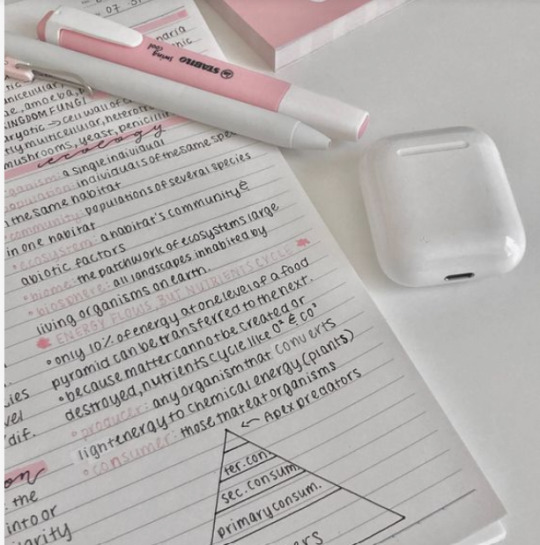
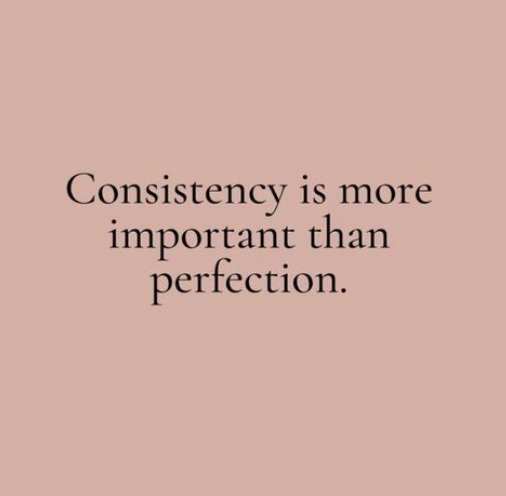
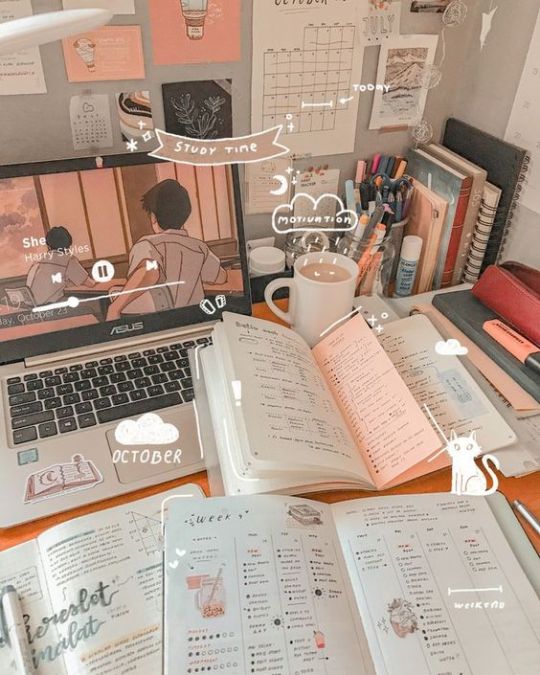
more tips...
Routine! ⋆ - Establish a consistent study routine to build discipline and maximize efficiency. Set specific times each day dedicated to studying, and stick to them religiously.
Movement! ⋆ - Don't stay glued to your chair for too long. Incorporate short movement breaks into your study sessions to boost circulation and refresh your mind.
Mindfulness! ⋆ - Practice mindfulness techniques such as deep breathing or meditation to reduce stress and improve focus during your study sessions.
Rewards! ⋆ - Motivate yourself by setting up a reward system. Treat yourself to something enjoyable after completing a study milestone to keep yourself motivated and on track.
you don't have to get it right the first time..
#science#studyblr#space#writing#college#art#student#writers#aesthetic study#aesthetic#study#study motivation#don't give up#motivation#music#1989#taylor swift#study blog#study tips#study advice#studyspo#desk tour#desk aesthetic#notes#notes aesthetic
32 notes
·
View notes
Text
Spent a day at WHSmith and the library to celebrate Word Book Day and International Women's Day only to find a cute charity shop and acquire 4 books for £1. To sum it up today was a success I feel as if my mini library might get to grow.
100 days of Productivity and Studying - Day 5

2 years ago when I properly started reading for fun I decided to focus mainly on one genre each year to broaden my vocabulary and explore different topics - This year I'm reading non-fiction for the very first time and I have only one thing to say, why is it so hard.
I've been stuck on Wuthering Heights by Emily Bronte for almost 2 months now, no one told me I'd have to carry a dictionary with me whenever I was reading this book. 🥲😭.
🎧- Restored - Wande
🌲- 3hrs
📚- Currently Reading - Wuthering Heights and Unstoppable
#aesthetic#books#studying#book community#booknerd#currently reading#bookworm#bookish#bookstagram#student life#study#science#high school#school#student#study aesthetic#study blog#study motivation#study notes#study tips#study with me#studyblr#studyblr community#studyspo#study session#personal rant#mini rant#long reads#book reading#book reccs
25 notes
·
View notes
Text
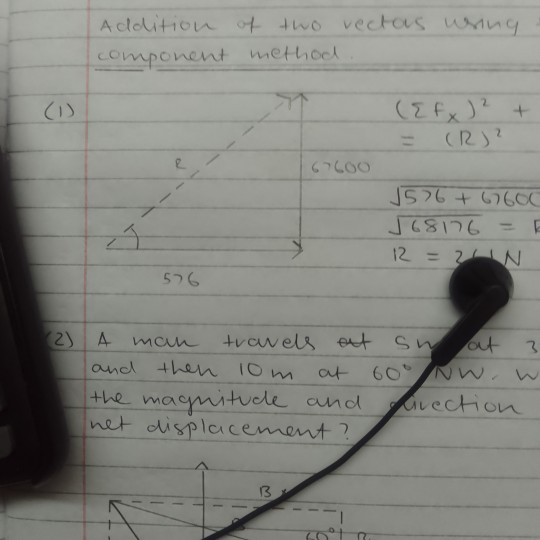


D-51 to first ever day of uni !! self studying for fun is no fun TT well not as fun as i expected i mean.
#studyblr#studyinspo#dark academia#study hard#student#study tips#physics#new studyblr#studying#studying aesthetic#studying inspo#comp sci#computer science#university student
111 notes
·
View notes